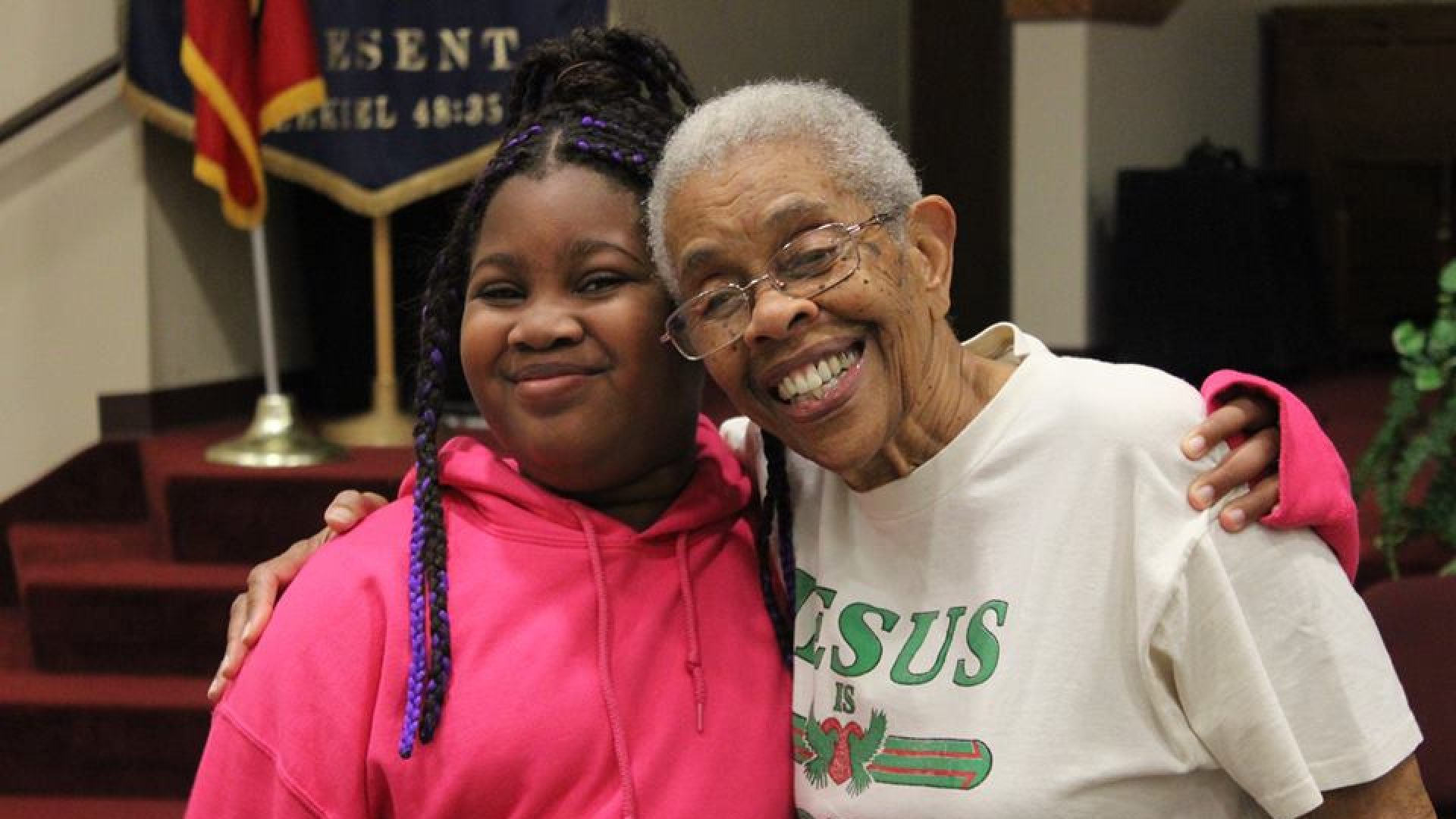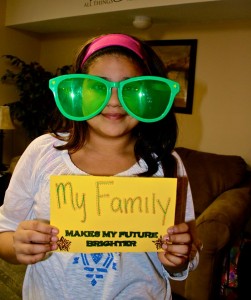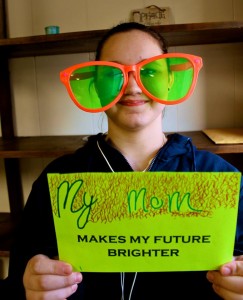“How come you’re tired today, Johnny?” a mentor asks a child in poverty. “Oh, I went to bed at 1:00 last night.” Silently, the mentor wonders why Johnny’s mom lets a 10-year-old stay up until 1:00 on a school night.
Another child tells his mentor that he spent his vacation playing Call of Duty and Grand Theft Auto. The mentor questions why a young kid would be allowed to play such violent video games.
When you work with kids in poverty, you see a lot of stuff, and that might include parents or guardians making decisions that you don’t agree with. Some of those decisions are minor (letting their kid wear something inappropriate or stay up too late) and some can be pretty atrocious (drinking heavily in front of kids, letting an unsafe relative live with them, blaming kids for tragedies or things beyond their control.) Believe me, we’ve seen and heard a lot. We get it.
When I first started working with kids, I tended to take the kid’s side, and put a lot of blame on parents. “What are they thinking? How could they do that? If only Johnny could live in a better home!”
But over the years (and especially as I became a parent myself), I’ve come to realize that when you work with kids, throwing Mom and Dad under the bus is almost always the wrong thing to do. Here are a few reasons why I came to that conclusion:
- It doesn’t help you build a better relationship with Mom and Dad. Your best possible impact on a kid is going to come from having a strong relationship with the family. If Mom and Dad sense that you are hostile to them, guess what? You are going to have zero relationship going on, and they may not want their kid spending time with you or your program at all. In fact, if you are middle class and Mom and Dad are in poverty, they probably already have a strong sense of your differences and may feel like you judge them from the get-go, so it’s going to take a lot of relationship-building to eradicate that. A sense of judgment coming from you will get you nowhere.
- Mom and Dad are probably doing the best they know how. Notice that I didn’t say “the best they can,” because there’s a good chance they *could* do better. You know what, I could be a better parent if I tried harder, too! But there’s an old adage: You do what you know. Mom and Dad are probably parenting the way that they know. If you or I were in their shoes, there’s a good chance we might be making the same choices. And sometimes, those choices are just built on values that are different than mine, and not wrong at all, just very different than what I would choose.
I often think of it this way: When I meet a child who’s been through trauma, I don’t blame the child for making poor decisions (although I want to help them learn to make better ones.) What happens when that child grows up to be a parent, if no one’s ever helped them through their trauma? They become a parent who makes poor decisions. I wouldn’t blame the child; and I wouldn’t blame them when they’re a little older and have a child themselves.
- Mom and Dad may be kids themselves. In poverty, kids have kids. It happens. Think back to yourself when you were 16 or 17 – how would you have parented? Sure, there are some teens who become parents and step up and make mature decisions for their child, but a lot of times they stay teenagers for a while.
- Mom and Dad may blame themselves already. There is a whole lot of shame associated with poverty. And while our culture is quick to blame absent dads for a lot of stuff, I have a feeling there are a whole lot of absent dads walking around our cities and filling up our prisons who are carrying a whole lot of guilt about their broken relationships.
Last summer I sat at a child’s funeral – probably the hardest week I’ve ever had in ministry – and saw a dad I only knew as “not in the picture.” He was wracked with sorrow. I can only guess the regret and guilt he felt. Since that day, I remember that every “not in the picture” dad actually exists somewhere, and whatever terrible choices he has made, he doesn’t need my judgment on top of it. Sure, you and I probably want to shake an absent dad and say, “Call your kid! Show up! Say I love you!” But we need to remember that shaming them and piling judgment on top of their own judgment is probably not helpful and, back to #2, they may just be doing what they know. - Mom and Dad love their kid more than you do. This kind of seems like a no-brainer, but sometimes arrogance can creep into our relationships, especially when a child is coming from a very broken or painful situation. I can say that I’ve never talked to a parent who didn’t love their child deeply and didn’t want the best for them, regardless of the choices that parent was making.
- The best thing for a child is to have a healthy relationship with their parents. Only in the most extreme, dangerous cases of abuse or neglect should a child detach from their parents. Other than those cases, the best thing for them is to learn to communicate with their parent. Pitting ourselves against the parent is not going to do anything to encourage the child’s healthy relationship with Mom and Dad.
So here are a few simple things I encourage you (and myself) to do:
- Meet Mom and Dad. (Duh!) Have you ever heard negative things about a parent from their kid, and then you meet them, and your perspective totally changes? But if you never meet them, you’ll never start to understand them as a real person. So if your program is set up in a way that you never meet kids’ parents, you probably need to fix that.
- Listen to Mom and Dad. I am always moved with compassion when I hear the incredible burdens parents in poverty are carrying: unsafe homes and neighborhoods, the stress of trying to keep a job, cars that won’t run, children with medical conditions, responsibility for other people’s kids, their own health problems.
- Pray for Mom and Dad. Pray for them when you see them and hear their burdens; pray for them privately.
- Help them find resources. I don’t recommend suggesting a parenting class to a parent you have no relationship with; but when you’ve met and listened to and prayed for Mom and Dad, there may be opportunities to help them find support and encouragement and yes, better decision-making as a parent.
- Help kids learn to talk to their parents about their feelings. I’ve encouraged older kids (maybe 4th grade and up) to communicate their feelings like, “I wish you would stop smoking because I’m afraid you won’t be here;” or “I know you are stressed out, but I feel hurt when you yell at me.”
- Help the kids learn to process their own choices and challenge them to be wise. Question the kid who stays up until 1:00 about how that makes them feel the next day, how it affects their learning, and how that affects their goals. Maybe Johnny, especially teenage Johnny, needs to learn to put himself to bed at 10:00.
- And here is my caveat … sometimes a situation does need to be gently brought to a parent’s attention. And if the situation is dangerous, you need to intervene. If you suspect abuse or neglect, you need to contact Child & Family Services, or often the child’s school counselor can steer you in the right direction. Just because we empathize with Mom and Dad doesn’t mean we can let a dangerous situation continue; however, we may need to bounce what qualifies as “dangerous” off of a professional.
It’s easy to throw Mom and Dad under the bus. It’s harder to love them. And love is the best path to helping them give their kids the best home they can.
Blessings,
Faith



